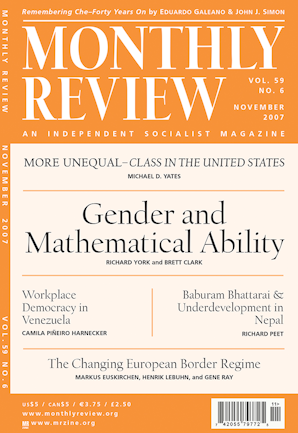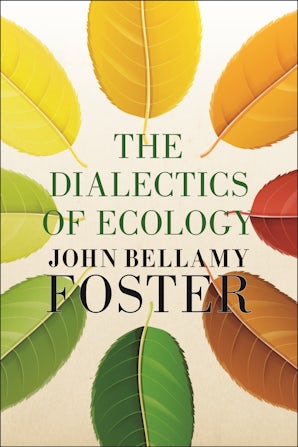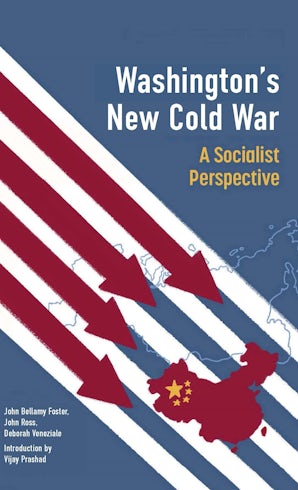Also in this issue
- From Borderline to Borderland: The Changing European Border Regime
- Workplace Democracy and Collective Consciousness: An Empirical Study of Venezuelan Cooperatives
- Nepal's Geography of Underdevelopment
- More Unequal: Aspects of Class in the United States
- Gender and Mathematical Ability: The Toll of Biological Determinism
- The Death and Life of Che
- Magic Death for a Magic Life
Books by John Bellamy Foster
Breaking the Bonds of Fate
by John Bellamy Foster
Unequal Exchange
by Arghiri Emmanuel
Notes by Charles Bettelheim
Foreword by Torkil Lauesen
Introduction by John Bellamy Foster and Brett Clark
Albert Einstein’s “Why Socialism?"
by Albert Einstein
Edited by John Bellamy Foster
The Dialectics of Ecology
by John Bellamy Foster
Washington's New Cold War
by Vijay Prashad, John Bellamy Foster, John Ross and Deborah Veneziale
Article by John Bellamy Foster
- Robert W. McChesney (1952–2025): A Personal and Political-Intellectual Memoir
- Eco-Marxism and Prometheus Unbound
- Ecological Marxism in the Anthropocene
- Marx and Communal Society
- ‘Gleichschaltung’ in Nazi Germany
- The Trump Doctrine and the New MAGA Imperialism
- MAGA Ideology and the Trump Regime
- The U.S. Ruling Class and the Trump Regime
- Western Marxism and Imperialism: A Dialogue
- The Necessity of a Universal Project






